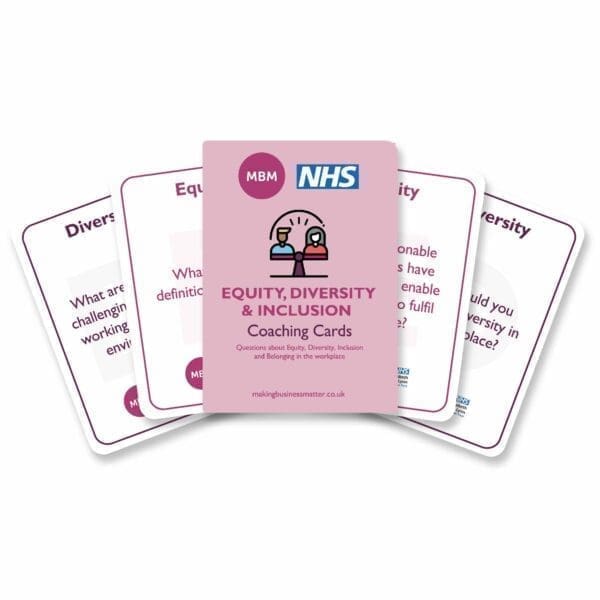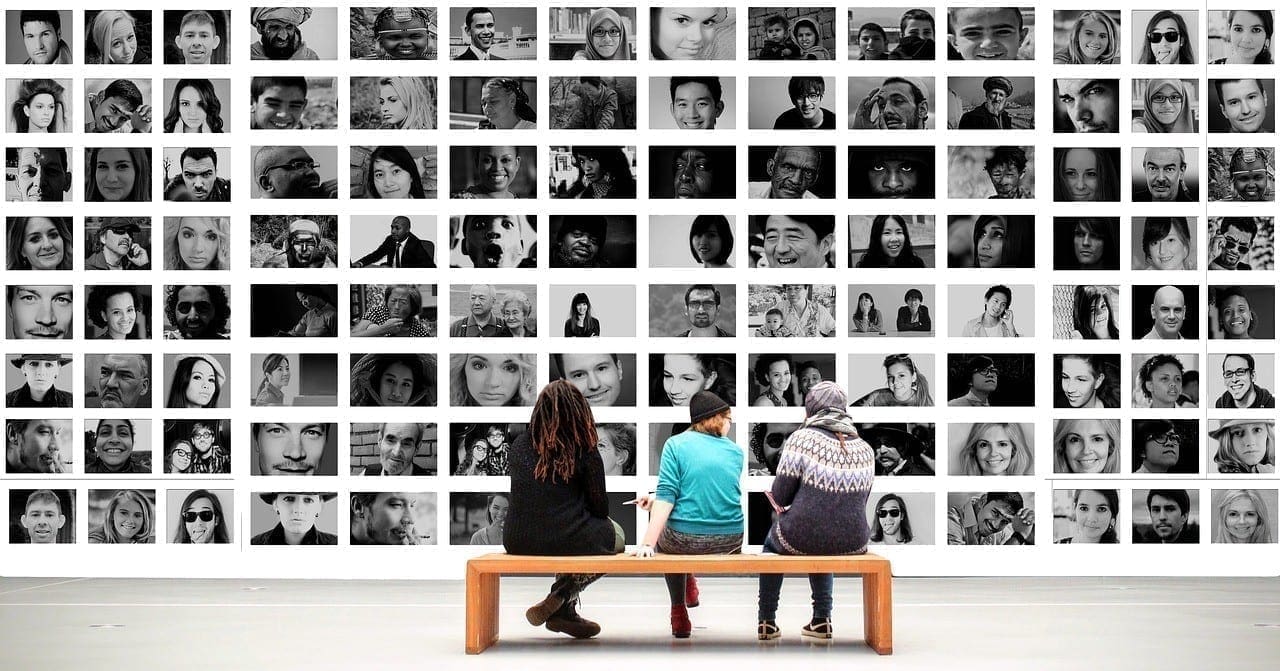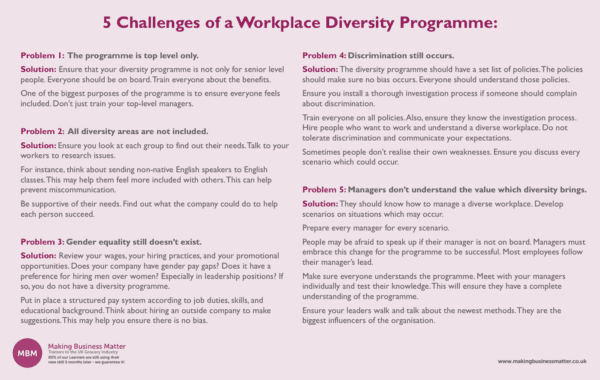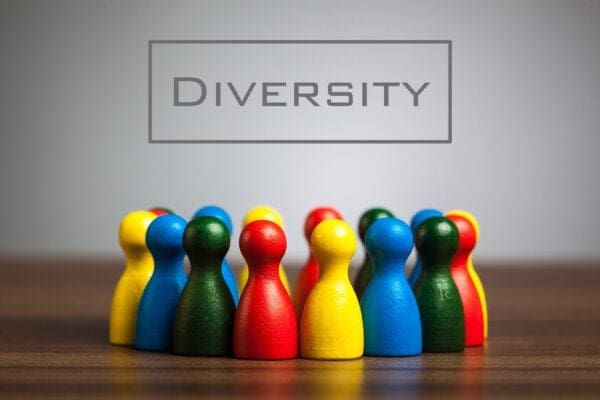Diversity in the Workplace Has Become a Business Need for Companies in the Past Few Years
What is workplace diversity? Diversity means having distinct or unlike elements. Therefore, it means people may be different from each other in the workplace. The differences may be of national origin, race, physical appearance, or religious beliefs. Also, it can include education, age, gender, or sexual orientation. Furthermore, it may even include political beliefs.
The United Kingdom has requirements for discrimination. Note that the Equality and Human Rights Commission (EHRC) monitors human rights. Furthermore, they protect equality across the following nine areas:
- Age
- Disability
- Gender
- Race
- Religion and beliefs
- Pregnancy and maternity
- Marriage and civil partnership
- Sexual orientation
- Gender reassignment
An effective diversity in the workplace programme will go beyond those requirements. Moreover, a diverse work environment encourages acceptance and respect among all employees.

>> EDI Coaching Card <<
>> Buy on Amazon <<
>> Buy on Etsy <<
Why is Diversity in the Workplace Important?
There are several benefits of having diversity in the workplace, such as:
1. Your Company Will Perform Better Financially
First of all, it is important to have a diverse workplace within your teams and company. New research shows an increase in financial performance when there is diversity in the workplace. Furthermore, a survey across 366 companies across the United Kingdom, United States, Canada, and Latin America found:
- Companies with racial and ethnic diversity are 35% more likely to perform better financially.
- Companies with gender diversity are 15% more likely to perform better financially.
- In the U.K., when a company increased their gender diversity by 10% in their leadership team, earnings rose by 3.5%.
2. Your Company’s Teams May Find Solutions Quicker
Diverse teams solve problems. Hence, differences in viewpoints are important in your business. Many times, recruiters may hire people who are like themselves. As a result, the company may end up with people who think the same and perform the same way. They may come up with the same solutions to problems. On the other hand, people with diverse backgrounds approach problems in a different manner. Hence, they may come up with better solutions.

Sticky Learning ® is 7 times more effective than 1-day training courses. Plus, you will get a Chain of Evidence proving your Return on Investment. Discover soft skills training that changes behaviours long term.

3. Recruitment Becomes Easier
When a company opens up their hiring pool to a large number of applicants, it becomes easier to recruit. You will find yourself with a greater range of candidates. Your perspective becomes more global. And more people will apply to your business if they feel accepted. In short, diversity in the workplace helps your company get to the next level. Glassdoor, one of the world’s largest job sites, surveyed 750 hiring decision-makers. They found that job seekers are looking at the demographics of the company.
In today’s era of the informed candidate, job seekers are hungry for as much information about a company as possible before they take a job. Job seekers want insights into what businesses are doing to build a workforce that is diverse in all aspects of the word be it age, gender, ethnicity or thought.” – Carmel Galvin, Chief Human Resources Officer, Glassdoor.
Fifty-nine percent of hiring decision-makers report that a lack of diversity is a barrier. It has become a challenge the company faces. As a result, they are unable to attract and hire quality candidates.
Candidates review companies about their diversity programmes. Specifically, diverse candidates feel they will have a better chance at promotion. Understandably, they want to work where they can progress in their career.
4. Diversity in the Workplace Fosters Mutual Respect
Employees who work in a diverse company know that everyone will not be the same. Above all, they respect and enjoy others who are different from them.
When a company doesn’t have a diversity programme, it can cause problems. Specifically, it can foster distrust, jealousy, and resentment. When mutual respect for each other’s differences exists, diversity can be a great asset to a company. It can actually strengthen your company culture and boost productivity.
9 Ways to Implement Your Diversity in the Workplace Programme
To implement a successful workplace diversity programme, you should:
1. Make a Long-Term Plan for Where You Are Now
To start, write down some ideas about where you would like to go. Do a self-assessment of your company to find your flaws. Look for areas in which you need to improve.
For example, have you ever said you aren’t hiring someone because they are not a cultural fit? This can be a form of bias. Fully assess the company. Develop best practices to ensure you are looking beyond your scope. Review all hiring, promotion, disciplinary, and termination practices. Review your current policies. What could you do differently?
2. Bring Your Top Employees on Board
Ensure your managers and your top workers know the plan. They should know exactly what you’re doing, and they should accept it. It is important to ensure your leaders want the same thing if they don’t, explain it clearly. Teach them about why it is important and how it can change the company. Give them examples of diversity programmes in other businesses. If someone is against diversity, consider removing them from the company. You don’t want people working there who don’t embrace change.
3. Ensure the Diversity in the Workplace Drive Is Unique to Your Company
Every business will not have the same programme. You can learn some best practices from other companies. Furthermore, you may encounter challenges which others do not have. The company has to embrace the change. Review their best practices. And take every opportunity into consideration.

4. Engage Other Employees
Teach them about the opportunities. They should know why the business should install a diversity in the workplace programme. Diversity training is important. So ensure you address any issues or concerns instantly. People fear change, so you should make sure to listen to all concerns. Also, urge questions and address fears. Make sure the person communicating the changes is influential in the company. They may have to use persuasion skills. Make sure that whoever is training believes in the programme. This is not just a presentation. It is a movement.
5. Don’t Stereotype Diverse People and Cultures
Everyone has probably encountered some type of bias in different forms. So work to train yourself and your staff to not stereotype anyone. Ensure you put policies in place which prevent any type of bias.
For example, think about diversity recruiting. Think about hiring someone with a disability. How could you accommodate them? Brainstorm with your teammates about any issues which may arise. Consider forming a diversity team with different people from protected classes. This will help you come up with different scenarios which may occur.
6. Change Your Old Policies
Also, think about making new policies which may help bring on different types of people. For example, think about flexible hours to help working parents. Consider changing policies which may exclude a group of people. Again, this is where a diversity team may help uncover new policies or get rid of old ones. You should put people on the team whom you can trust. Make sure they understand the importance of confidentiality.
7. Respect People Who Are Completely Different
Do you make a hiring decision if a person says they don’t want to move up in your business? Why? Some people want growth and some people want a work/life balance. It is okay for someone to work at the same job for years. Now this goes back to bias. Respect different career goals. Consider every way you may stereotype someone.
8. Speak About Why It Is Important for the Business
Why does the company care? Don’t implement for financial profits only. Employees should believe that your business really cares about diversity and its people. They need to know it is more than a financial commitment. It is about investing in your current and future workers. Afterall, if people feel the company cares, employee engagement will rise.
9. Discuss Your Commitment During Every Meeting
Discuss the diversity and inclusion plan in the induction process with new employees. It should never be a one-time chat. Don’t avoid conversations. If someone has an issue where they feel discriminated or excluded, you should discuss it. Above all, listen to every opinion and voice from your staff.
Note that installing diversity in the workplace programme may uncover a lot of bias. It may uncover bias which has occurred in the past. Sometimes people are biased, and they don’t realise it. This is why training and communication are very important.
Challenges of a Diversity Programme
What are the challenges to put a diversity and inclusion programme in place? Experts know that a diverse team can improve morale. It can increase productivity and build financial growth. But there are different examples and issues which may occur.
Below are some challenges which may exist and what you can do to overcome them. Click the image for a lager version:

Final Thoughts
Diversity in the workplace is important. It is more than just about our own thinking. It is learning to have respect for differing people, opinions, and beliefs.
Putting a diversity in the workplace programme in place is important. It helps recruiters hire top talented people. Likewise, it brings greater awareness about differences. Ultimately, a good workplace diversity programme can improve the success of your business. Now problems may occur. But you should ensure you stay on course. Research what you can do to succeed.
Learn from other’s errors and their victories. The most important thing your company should do is to ensure you treat it like any other large project. Consider putting milestones in place for every step. You will need to train the entire company (and yourself) to think differently. Finally, be change agents. Become the company in which most people want to work and feel they are accepted.
An individual has not started living until he can rise above the narrow confines of his individualistic concerns to the broader concerns of all humanity.'”- Martin Luther King, Jr.




